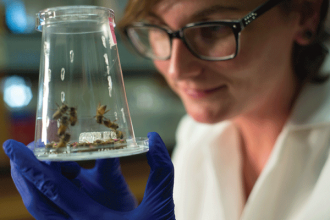
Honey Bees, Antibiotics and Gut Microbia
By: Rebecca Novak Tibbitt The role of antibiotics is both good, and bad in honey bee microbia. Researchers at the University of Texas, Austin,…
Read More
By: Rebecca Novak Tibbitt The role of antibiotics is both good, and bad in honey bee microbia. Researchers at the University of Texas, Austin,…
Read More
Recent Accomplishments And Where We Are Heading Shapiro, Dykes, Sears, Hays, Berthelsen, Waycott Intro/Overview, by Julie Shapiro Honey bees play an integral role in…
Read More
By: Toni Burnham Honey bees, unlike marchers, stay inside when it pours down rain. Here in DC, advocates for pollinator research got soaked, instead….
Read More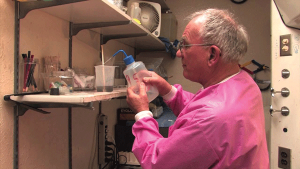
By: Vaughn Bryant, Texas A&M There is very little truth in honey labeling. “Houston, we have a problem!” Those were words that echoed around the world…
Read More
A Summary Of The Proceedings From Galveston By: Elina L. Niño This year marked yet another tremendous joint conference of the American Beekeeping Federation, The…
Read More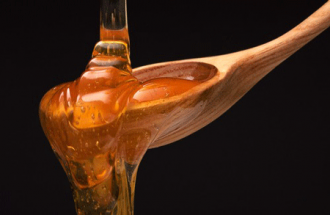
By: Robert Packer Using Infrared Spectroscopy. It’s as easy as A, Bee, C. Food adulteration: A global problem While many people are aware of…
Read More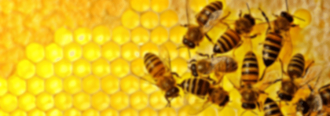
Prime Time, Passing Along Immunity. What if you could predict the disease environment of your offspring and then do something to increase their odds…
Read More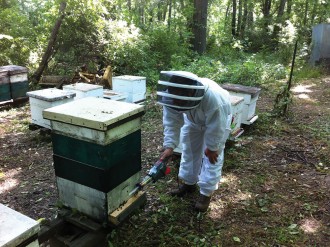
by Jeff Harris The use of a class of systemic insecticides called neonicotinoids remains a highly controversial issue for the general public, beekeepers and…
Read More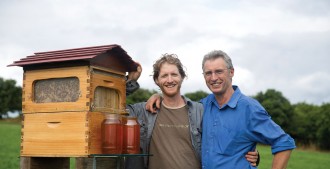
by Ross Conrad Stewart and Cedar Anderson of Byron Bay, Australia have made history and are fast becoming legendary. The father and son team…
Read More
It’s important to know what blooms when and where by Denise Ellsworth Spring can be slow to arrive to Ohio. Here in the Buckeye…
Read More
CO2, UV light, temperature and humidity all affect nectar production and quality by Carmine DeStefano The practice and art of beekeeping is a tremendously…
Read More